News & Media
Be prepared to reskill and approach learning as a continuous process
Prof Tshilidzi Marwala, Vice-Chancellor and Principal of the University of Johannesburg, addressed participants on the third day of the Unisa Teaching & Learning Festival 2020. Marwala, who was appointed by President Cyril Ramaphosa to the Presidential Commission on the Fourth Industrial Revolution (PC4IR), on which he serves as Deputy Chair, addressed the virtual festival on South Africa preparing for the future through online learning - subject matter befitting a speaker of his résumé and expertise.
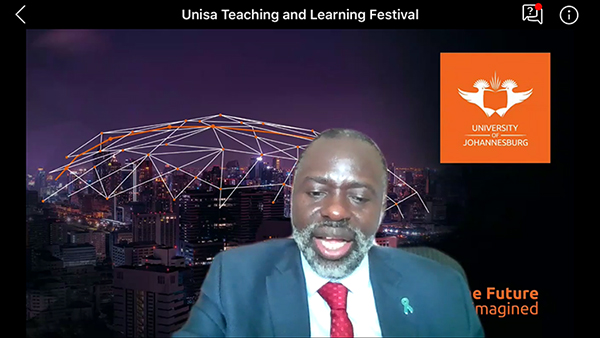
Prof Tshilidzi Marwala (Vice-Chancellor and Principal: University of Johannesburg) addresses the Unisa virtual Teaching and Learning Festival 2020.
Since its appointment, the PC4IR has made eight recommendations that will put South Africa’s fortunes on the Fourth Industrial Revolution (4IR) on an upward trajectory. Marwala took time to address some of these while paying specific attention to the following:
Building human capital for 4IR
Marwala posits that 4IR predicated mainly on artificial intelligence (AI) is an era in which intelligent technologies permeate all aspects of our lives - be they in the economy, society or politics. He explains further that 4IR is envisioned to grow economies exponentially and could be the key to finding solutions to some of the most deep-seated problems. "So many countries have prioritised creating AI strategies," he explains.
"South Africa has made some headway, but we are still playing a catch-up game. Last year, President Cyril Ramaphosa established the Presidential Commission on the Fourth Industrial Revolution, which he chairs, and of which I am the deputy chair. We were tasked with the responsibility of putting together a plan that will ensure that South Africa takes advantage of the opportunities presented by the digital industrial revolution," says Marwala.
Earlier this year, the commission drafted a preliminary report with some preliminary recommendations. The report was submitted to the Department of Communications, as well as the Presidency, and was considered by the Cabinet. He explains that the investment on human capital is a logical and necessary intervention, taking into consideration South Africa’s rising unemployment rate, coupled with the brain drain of the past few years.
He explains however, that "this will not be an easy task, when you consider that the focus needs to be on both lowering the unemployment rate and preparing the current workforce for changes of the 4IR." Marwala says that, in the 4IR, there must be a mixture of skills stacked on top of each other - and aligned to industry. This, he says, should allow people to enter and leave the system at numerous points as part of a lifelong learning process. "We need to invest in projects for mass skills development. This investment can be scaled for exponential skills pipeline development and market absorption."
Marwala argues that, as a matter of national culture, all aspects of society must be prepared to reskill and to approach learning as a continuous process. "Our education system at all levels must promote problem-solving skills, computational thinking, multidisciplinary skills and systems thinking, as well as mastering the social, economic and political worlds," he says.
How do we go about this? "First, the government needs to prioritise a redesign of the human capacity development ecosystem to link our entire pool of potential employees to productive and decent work. To achieve this, a comprehensive view of the whole human capital system must be developed, and the leverage points that can be accelerated by 4IR need to be identified," says Marwala.
Second, "the private sector - comprising both large businesses and small, medium and micro enterprises - needs to outline which skills are required and collaborate on strategic projects for mass skills development linked to various industries."
Third, "labour unions need to review their role in light of the 4IR and recommend appropriate worker protections. This will have to be done in collaboration with the government to be implemented."
Fourth, and finally, "academic institutions - ranging from schools to universities to technical and vocational education and training colleges - need to review their curriculums with a focus on the 4IR to ensure the relevance of qualifications based on the requisite skills and the principle of lifelong learning," elaborates Marwala.
To conclude, Marwala reflects on the impact of Covid-19, which he posits has forced us into the fast lane of the 4IR super-highway. Marwala explained that the global pandemic which has seen the world locked down has shown that we can no longer dismiss 4IR as mere rhetoric. "Keeping economies functioning while curbing the spread of the virus has hastened the shift towards the 4IR," he says.
About Marwala
Marwala has received in excess of 45 honours and awards, including the Order of Mapungubwe, and he was the first African engineer to be awarded the National Research Foundation's President's award. Notable other honours and awards include being the Carl and Emily Fuchs Chair of Systems and Control Engineering as well as the SARChI Chair of Systems Engineering at the University of the Witwatersrand.
His academic qualifications include a Bachelor of Science in Mechanical Engineering magna cum laude from Case Western Reserve University (USA), a Master of Mechanical Engineering from the University of Pretoria, and a Doctor of Philosophy degree in Engineering from Cambridge University. He completed a postdoctoral research associateship at the Imperial College (London) and a programme for Leadership Development at Harvard Business School. Marwala is a registered professional engineer, a fellow of the World Academy of Sciences, the Academy of Science of South Africa, the African Academy of Sciences, the South African Academy of Engineering, a senior member of the Institute of Electrical and Electronics Engineers, and a distinguished member of the Association for Computing Machinery.
Marwala’s research interests are multidisciplinary and include the theory and application of computational intelligence to engineering, computer science, finance, social science and medicine. His global network is wide and includes being a visiting scholar at Harvard University, at the University of California at Berkeley, at the Wolfson College of University of Cambridge, and at Nanjing Tech University. He is also a member of the programming council of the Faculty of Electrical Engineering at the Silesian University of Technology (Poland).
* By Tshimangadzo Mphaphuli, Senior Journalist, Department of Institutional Advancement
Publish date: 2020-10-09 00:00:00.0


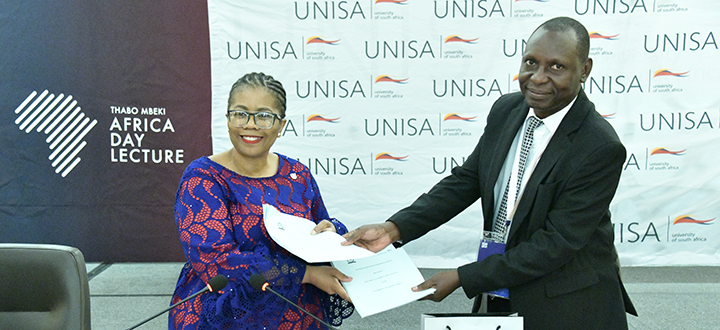 Unisa partners with leading Tanzanian universities to advance African higher education
Unisa partners with leading Tanzanian universities to advance African higher education
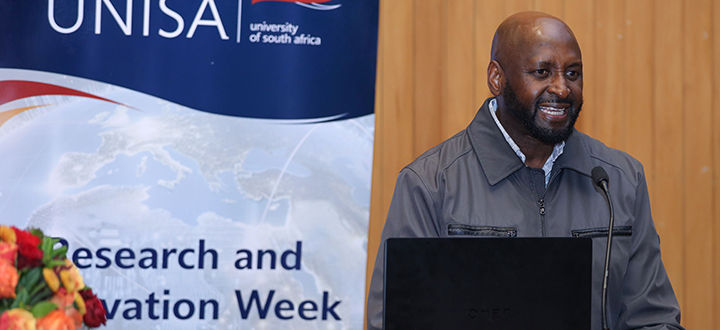 Research with impact – moving beyond bean-counting
Research with impact – moving beyond bean-counting
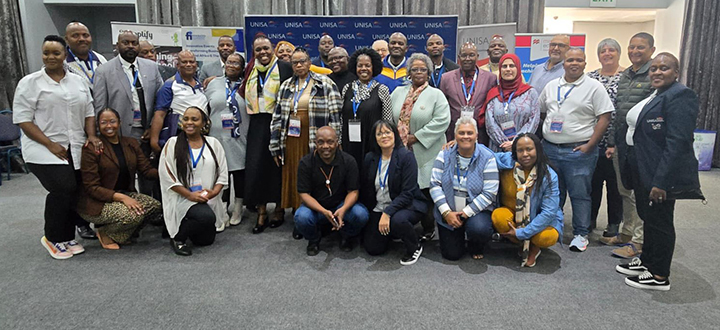 Exploring resources to mitigate the digital divide in rural areas
Exploring resources to mitigate the digital divide in rural areas
 Unisan in the home straight at the NSTF-South32 Awards
Unisan in the home straight at the NSTF-South32 Awards
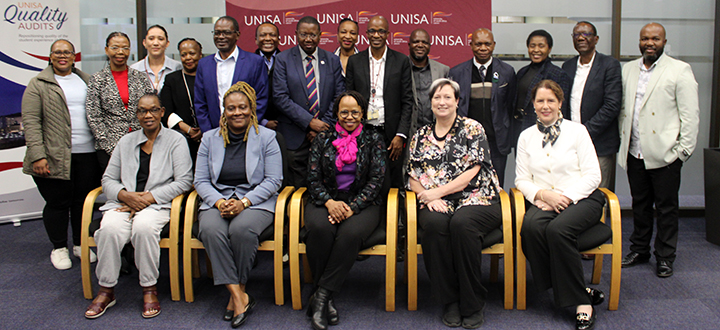 Unisa LIS reflect on successful 2025 external peer review
Unisa LIS reflect on successful 2025 external peer review